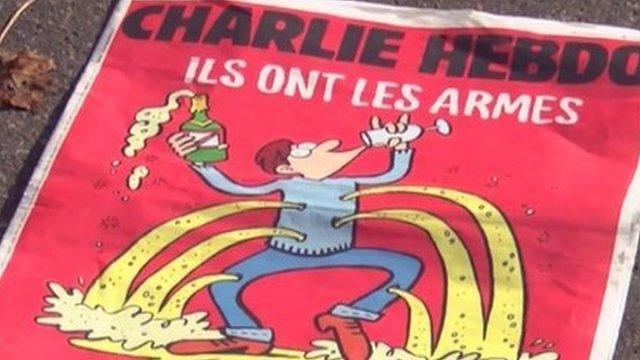Charlie Hebdo backlash over 'racist' Alan Kurdi cartoon
- Published
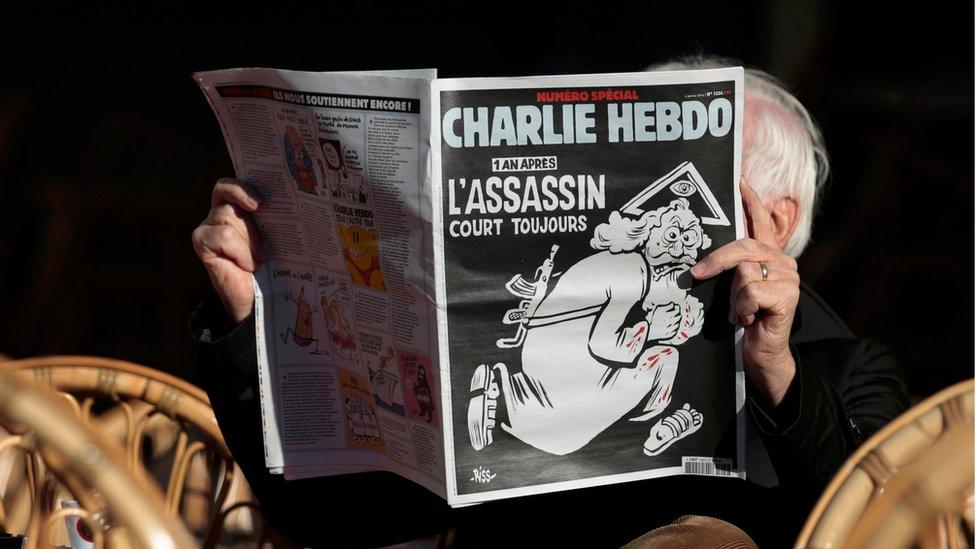
Charlie Hebdo has courted controversy recently with cartoons about the Paris attacks and migrant crisis
French satirical magazine Charlie Hebdo is facing yet another backlash after depicting Alan Kurdi, the young Syrian refugee who drowned, as an adult committing a sex assault in Germany.
The cartoon depicts Alan's body alongside a caption suggesting he would have become a "groper in Germany".
It follows the revelation that gangs of migrants carried out organised sexual assaults in Cologne on New Year's Eve.
The magazine has been widely condemned on social media and accused of racism.
Twitter users called the image "disgusting" and "tasteless", as well as accusing the magazine of racism and Islamophobia.
Has Charlie Hebdo legacy gone sour?
Cologne attacks put spotlight on North African community
The controversial cartoon comes a week after the anniversary of the shooting at the magazine, which killed 10 of its staff.
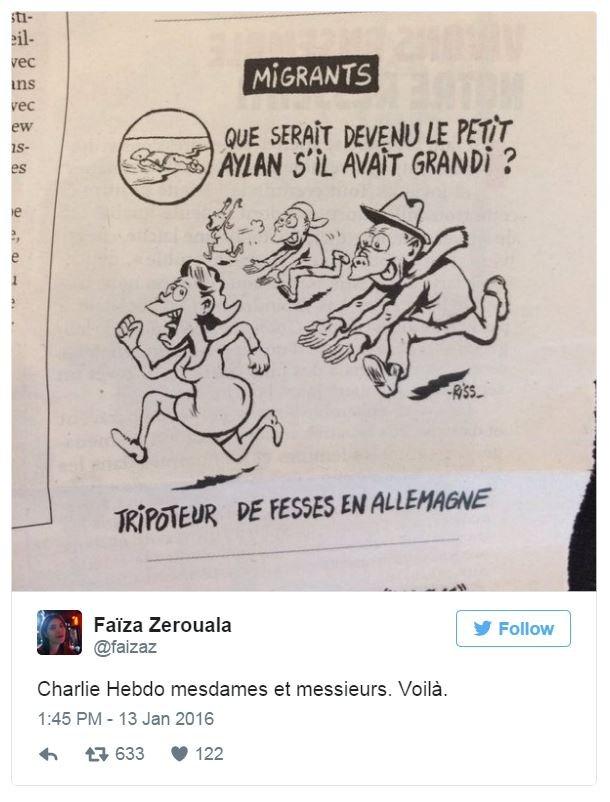
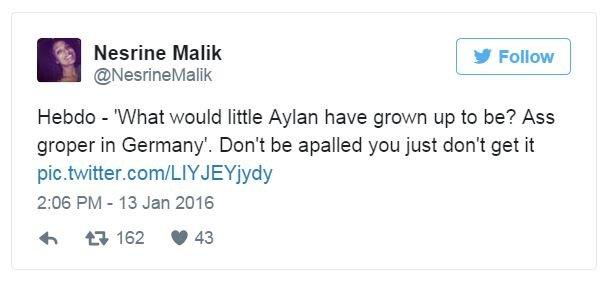
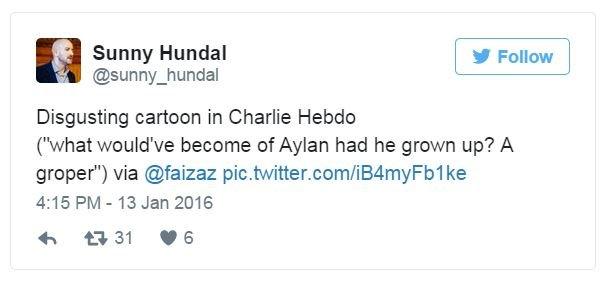
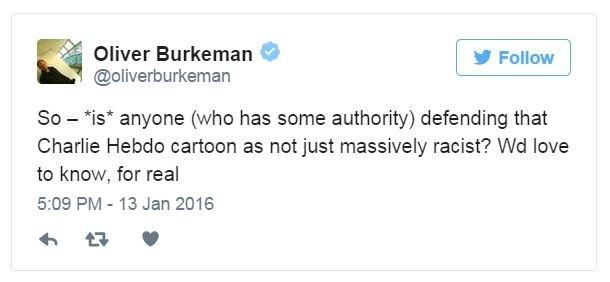
Alan Kurdi has become a touchstone for the magazine's satirists, appearing in a number of cartoons over the past few months.
One, which was rejected as a cover image, showed the boy's body washed up on the beach next to a McDonald's advert, with the caption, "So close".
This latest use of his image seems to be an attempt to satirise those who would blame all migrants and refugees in Germany for the actions of a few, some Twitter users suggested.
The attacks in Cologne have heightened existing tensions in Germany over the country's open policy towards migrants and refugees.
But a series of highly provocative cartoons have cooled the extraordinary outpouring of solidarity with the magazine after the January 2015 attacks.
It has been beset by infighting and its senior cartoonist Luz - the man who designed the first edition after the attack - announced his resignation.
- Published6 January 2016
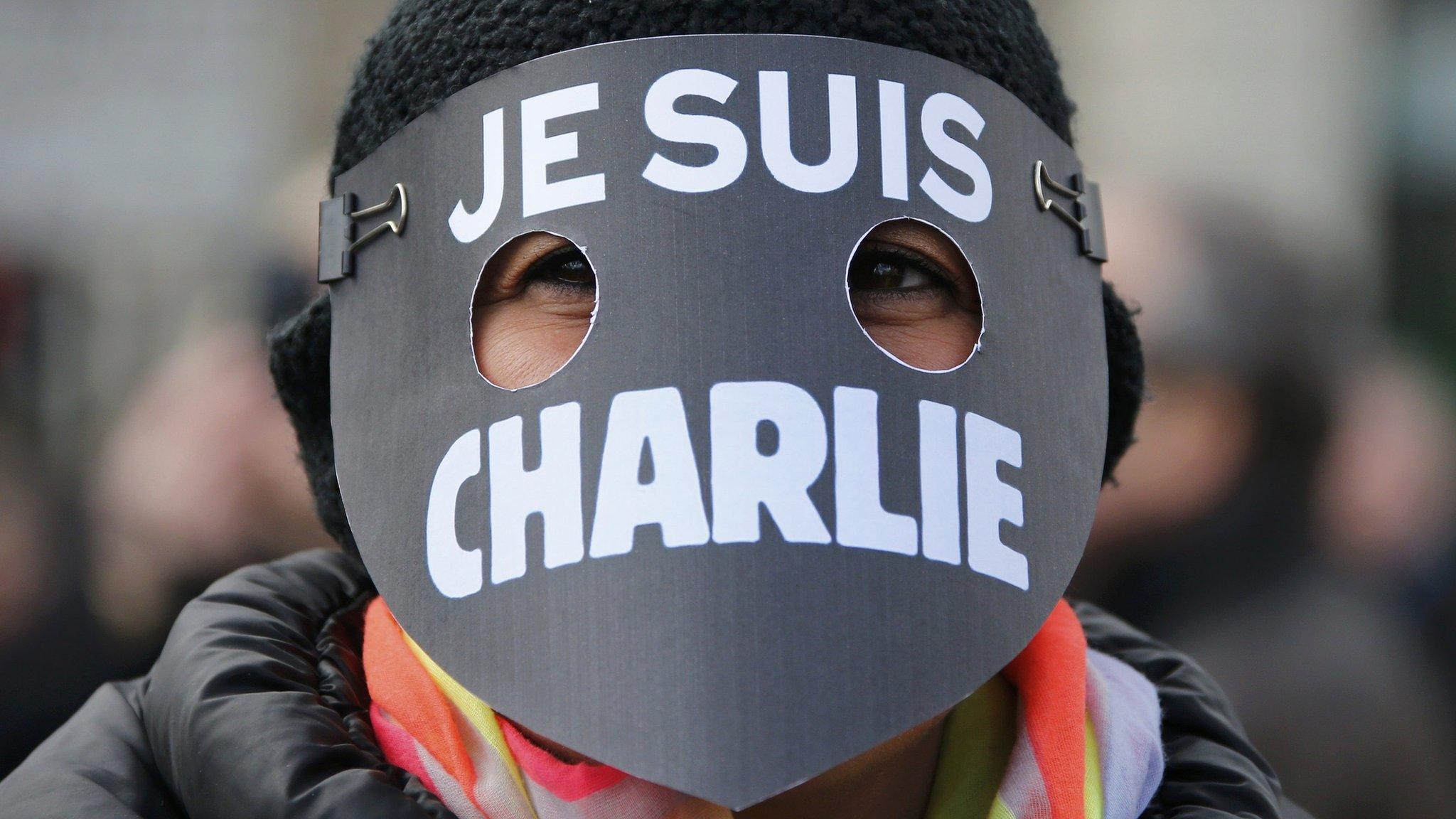
- Published13 October 2015
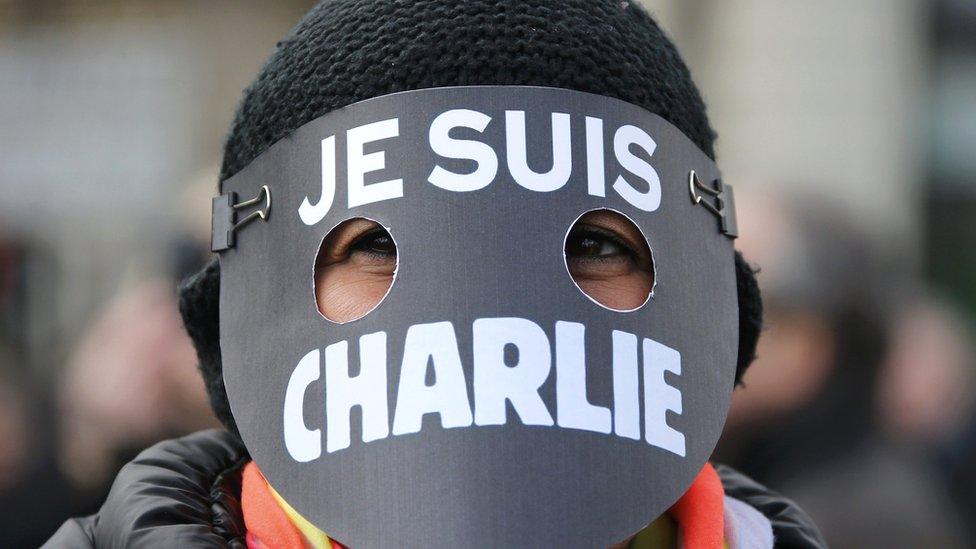
- Published13 January 2016
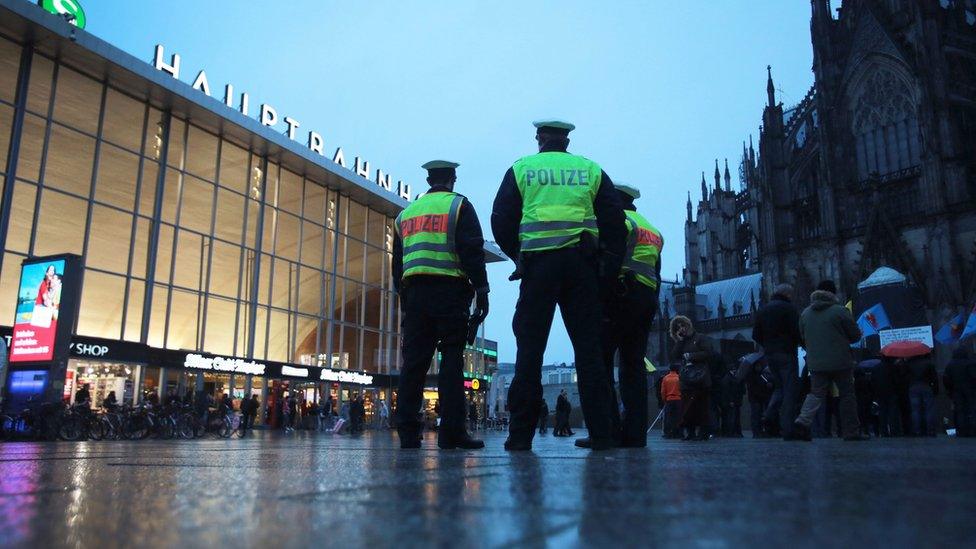
- Published18 November 2015
